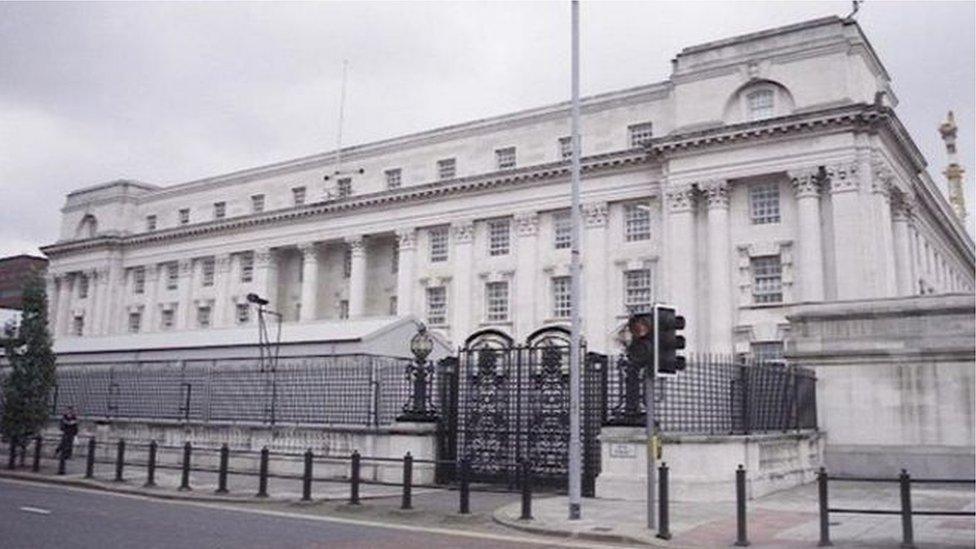James Alexander Smith's murder conviction referred to appeal court
- Published

A man jailed for life for murder has had his conviction referred to the Northern Ireland Court of Appeal as a possible miscarriage of justice.
James Alexander Smith and his co-accused Peter Greer were convicted under the joint enterprise law in 2013 of the murder of Duncan Morrison and attempted murder of Stephen Ritchie.āÆ
The victims were shot in a flat in Bangor, County Down, on 13 May 2011.
Smith was sentenced to life in prison with a minimum tariff of 21 years.
His case has now been referred by the Criminal Cases Review Commission (CCRC) following a review of directions given to the jury during the trial.
The CCRC is an independent body set up under the Criminal Appeal Act 1995.
It is responsible for independently reviewing suspected and alleged miscarriages of criminal justice in England, Wales, and Northern Ireland.
This is the first time the CCRC has referred a joint enterprise case in Northern Ireland.
Joint enterprise
Joint enterprise law allows several people to be charged with the same offence, even though they may have played very different roles in the crime.
In 2016, the Supreme Court said the law had been misinterpreted for 30 years.
It said a person should only be found guilty of a joint enterprise offence if they intended to assist or encourage the person who committed it.
CCRC chairman Helen Pitcher said the commission had received dozens of applications to review historic joint enterprise convictions after the 2016 Supreme Court ruling.
She added that joint enterprise appeals had a high hurdle to clear and in Smith's case, there had to be a strong case that the directions to the jury made a difference to the outcome of the trial.
"We have referred this case to the NICA because we believe there is a real possibility that they will overturn Mr Smith's convictions," she said.
"Having carefully analysed the case, the CCRC has decided that there is a real possibility that had the jury been directed in line with the law as it is now understood, this would have made a difference to the outcome of the trial.
"The CCRC has therefore concluded that there is a real possibility that NICA will decide that it would be a substantial injustice for Mr Smith's convictions to stand.āÆ"
Related topics
- Published22 March 2013